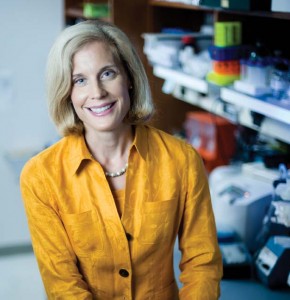A Leader in Advancements
August 2, 2019

Photo by Joe Howell
Vanderbilt-Ingram Cancer Center is a leader in advancements and quality outcomes for stem cell transplants. Having performed more than 5,000 transplants, our team has achieved one of the best survivorship rates in the nation for our patients who receive allogeneic transplants from unrelated donors. We are also among the select cancer centers pioneering and partnering with biopharmaceutical companies for new cellular therapies involving autologous transplants, where T cells from patients’ blood are reengineered to attack cancer cells. Our cover story celebrates those achievements, while raising awareness about the need for more stem cell donor diversity to address a health disparity for African Americans and other minorities, who face greater odds matching with an unrelated donor.
Other stories in this issue of Momentum highlight the work of investigators in basic and translational science endeavors that may lead to innovations in cancer treatment and early diagnosis. One research team has discovered a new mechanism of DNA repair, a potential window for future drug therapies. Another team is investigating if liquid biopsies, a less invasive alternative to tissue biopsies, can be used to detect and diagnose cancer at its earliest stages.
Patients featured in this edition share their stories of determination. Given a bleak prognosis for survival after being diagnosed with peritoneal carcinomatosis, Ron Duncan opted to undergo a highly specialized surgery six years ago that saved his life. Pam Simmons gives a first-person account of following in the steps of her twin sister after they were both diagnosed with the same cancer. Cindy Betz explains why undergoing genetic screening for predisposition to cancer and other diseases turned out to be a smart decision.
At Vanderbilt-Ingram Cancer Center, we are determined to keep defining personalized care with innovative treatments delivered with compassion. We are committed to reducing suffering and death from cancer through pioneering research, evidence-based prevention and community engagement. We greatly appreciate all our partners in these endeavors.
